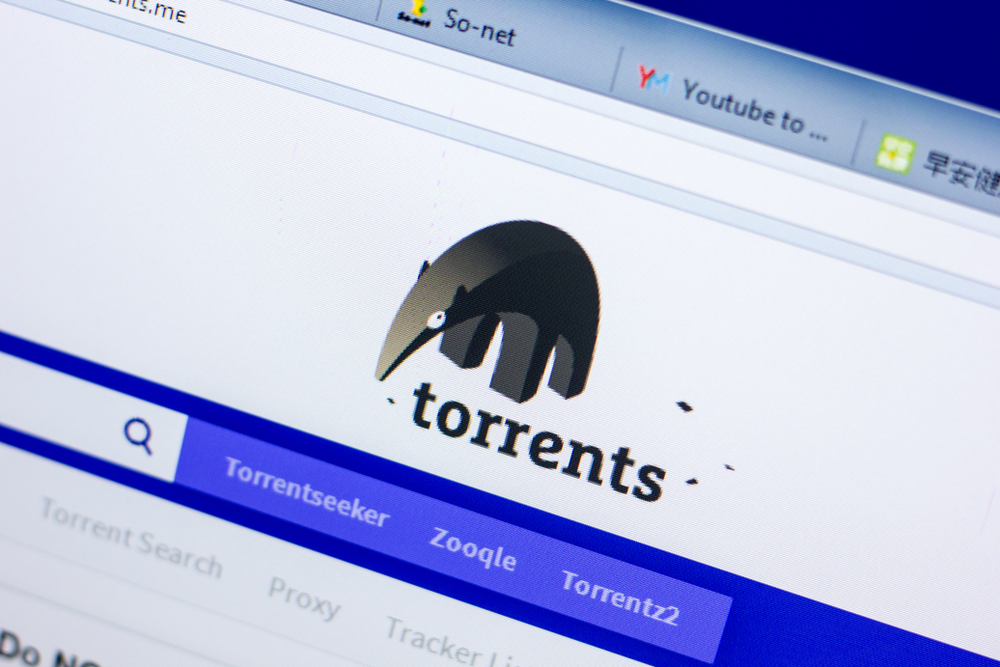Torrents changed the landscape of online file sharing forever. Facebook, Twitter, and many other companies (and even the UK government) have or are currently using torrenting to share large files because they are so fast and convenient. It also saves on bandwidth costs, so that’s a big plus.
Independent video artists and producers also use torrenting to make their creations available online for promotional purposes. It makes sense because not everyone can have the luxury of signing up with a publisher. Or maybe they are doing it on principle.
Of course, torrenting and other peer-to-peer (P2P) technology have also been used to share files illegally. As a disclaimer, we do not condone this practice. However, it is unfortunate that economically less powerful regions have to use illegal flows to gain access to software, learning materials, entertainment and other media.
Even if you don’t use a shadow torrent tracker, there are still a number of dangers when it comes to torrenting. So avoid them for a safer experience.
Choose Your Torrent Client Carefully
You haven’t started torrenting yet and your torrent client has turned your computer into a cryptocurrency miner. This happened with the popular torrent software uTorrent in 2015. Users of the uTorrent forum accused the vendor of bundling the Litecoin miner “Epic Scale” in an unsupervised installation (ie without a clear indication that it is being installed).
Epic Scale slows down the system as it uses up valuable CPU power in the process. The fact that it was installed without notifying the user later turns out to be fake. However, you shouldn’t be careless about installing new software – especially torrent clients. They regularly link to other dubious software commoners (also called bloatware).
It’s best to be careful with adware like uTorrent as the code behind the ad can be used to remotely install malware, thus harming your system. Microsoft and other anti-malware vendors have even hinted at uTorrent as malware for a while. Instead, try using free open source software (FOSS) such as qBittorrent or Deluge.
Not only does it have ads, but because it is open source anyone can review the code to make sure any security holes are fixed in a timely manner.
Install Decent Anti-Malware
Malware can hide in downloaded files, especially if you are using illegal torrent sites. Game of Thrones, one of the most pirated shows in recent history, was responsible for 17% of all piracy infections in 2018.
It’s a good idea to install anti-malware on your system, whether you are a hijacker or not. Torrent poisoning is a thing, and you never know when it might happen to one of the self-released music albums. Here are some good anti-malware options, just in case.
Use Legal Torrents
it’s illegal – but where are all these legal torrent sites? No need to overdo it, here are a few viable options:
BitTorrent Now offers free music, news, and other media. Click “I already have a torrent client” during download if you have followed our suggestions and used the FOSS uTorrent alternative.
Jamendo – offers to stream and downloading torrents to find independent artists. By the way, you need a free account to be able to use the download function.
Internet Archive – one of the largest archiving projects on the Internet – is also a viable legal torrent provider. This site contains countless audiobooks, e-books, old films and TV shows, as well as other media that have found their way into the public sphere.
Public Domain Torrent – especially for movie lovers looking for old B-movies and other public domain stuff.
Torrent with a VPN
Virtual Private Networks (VPNs) are a comprehensive security measure for torrenting and routine browsing. First, your real IP address will be replaced with the one used by the server when you connect to the VPN.
You probably know that torrent clients allow you to see the IP addresses of everyone currently downloading or distributing torrents. Now, strangers online can use your IP to find your location – and although this is rare, why take the risk?
In fact, the biggest danger may come from your Internet Service Provider (ISP). Without a VPN, the ISP can read your network traffic as an open book, including any torrents you download. ISPs have been known to sell your browsing data (VPN encryption helps you hide completely, by the way). So use Utorrent with a VPN or other client that uses a decent VPN.
But back to torrenting: if they see suspicious downloads from your IP, you can risk:
Termination of your internet service for violating your provider’s general terms and conditions.
Depending on how strict the copyright laws are in your country, please report this to the copyright agency and the possible legal action that may result.
Will Any VPN Do?
In a perfect world, all VPN providers would pay attention to the privacy and security of their users to benefit. Unfortunately, the most popular “free” VPNs don’t:
Sell your data to third parties (as opposed to your ISP doing the same). As an important note, make sure the VPN provider you choose has a no-sign-up policy if you don’t want them to follow your browsing habits.
Contains aggressive advertising (popups and similar annoyances). One provider (Hotspot Shield) even complained about by the FTC.
They either contain malware outright or use no encryption at all, the latter being a very important VPN feature.
Providers don’t even have to have malicious intentions, but VPN services are expensive to maintain. So, it so happens that customer data is valuable to the right people, and advertising is one of the few solutions to keeping a product “free” and still making money.

